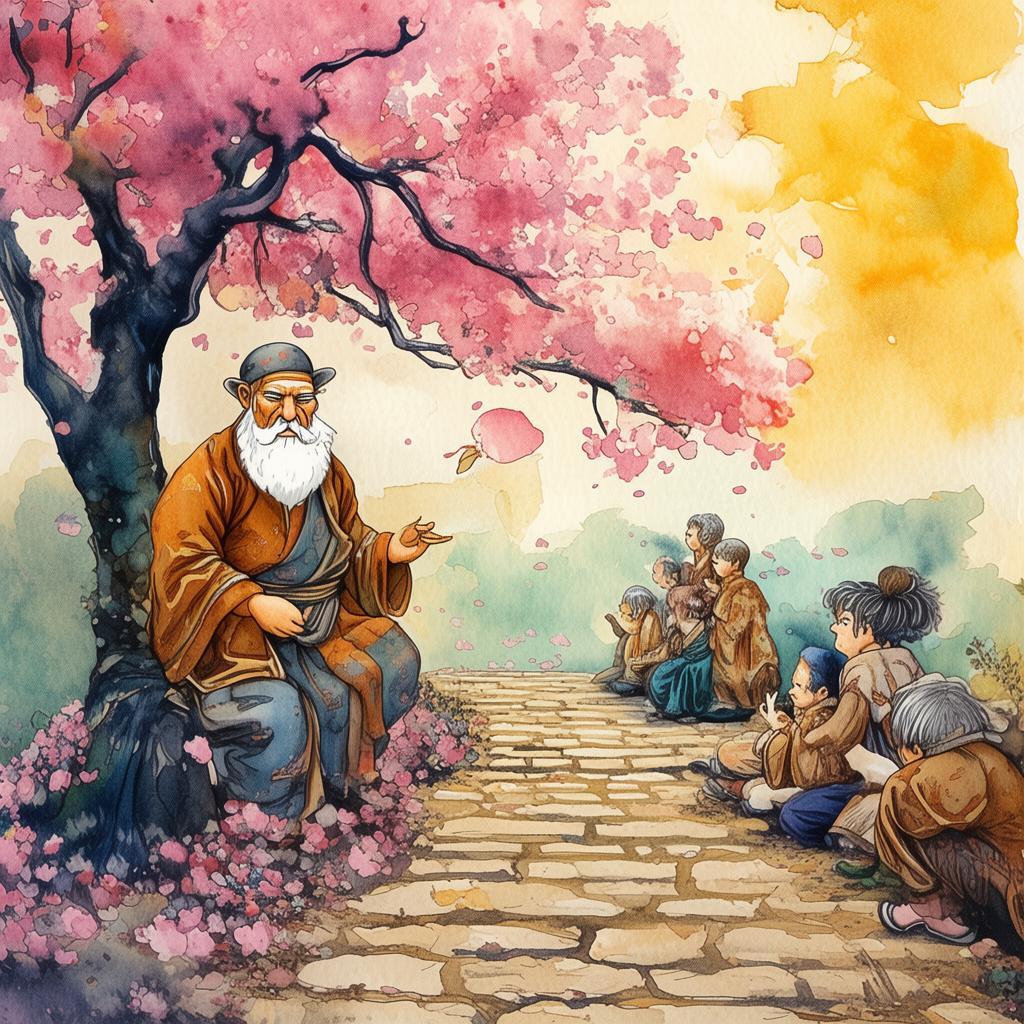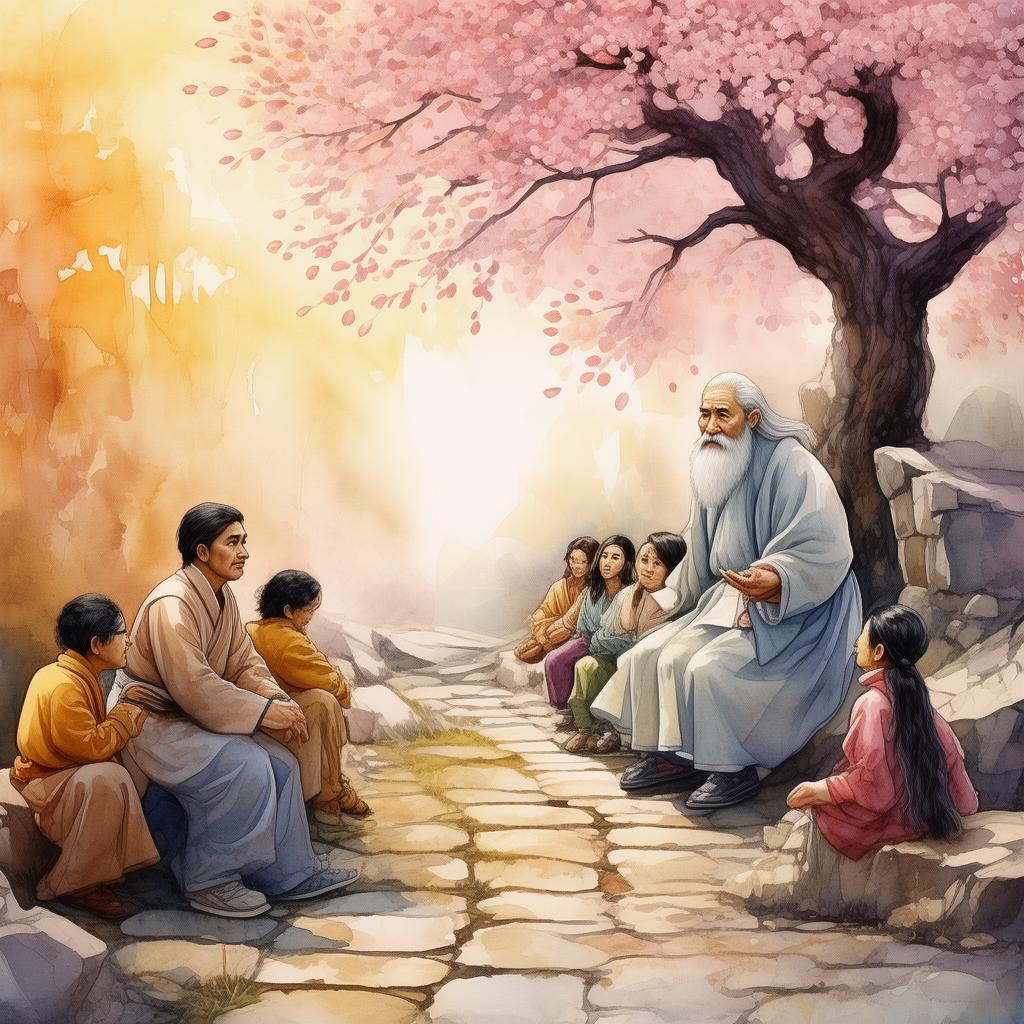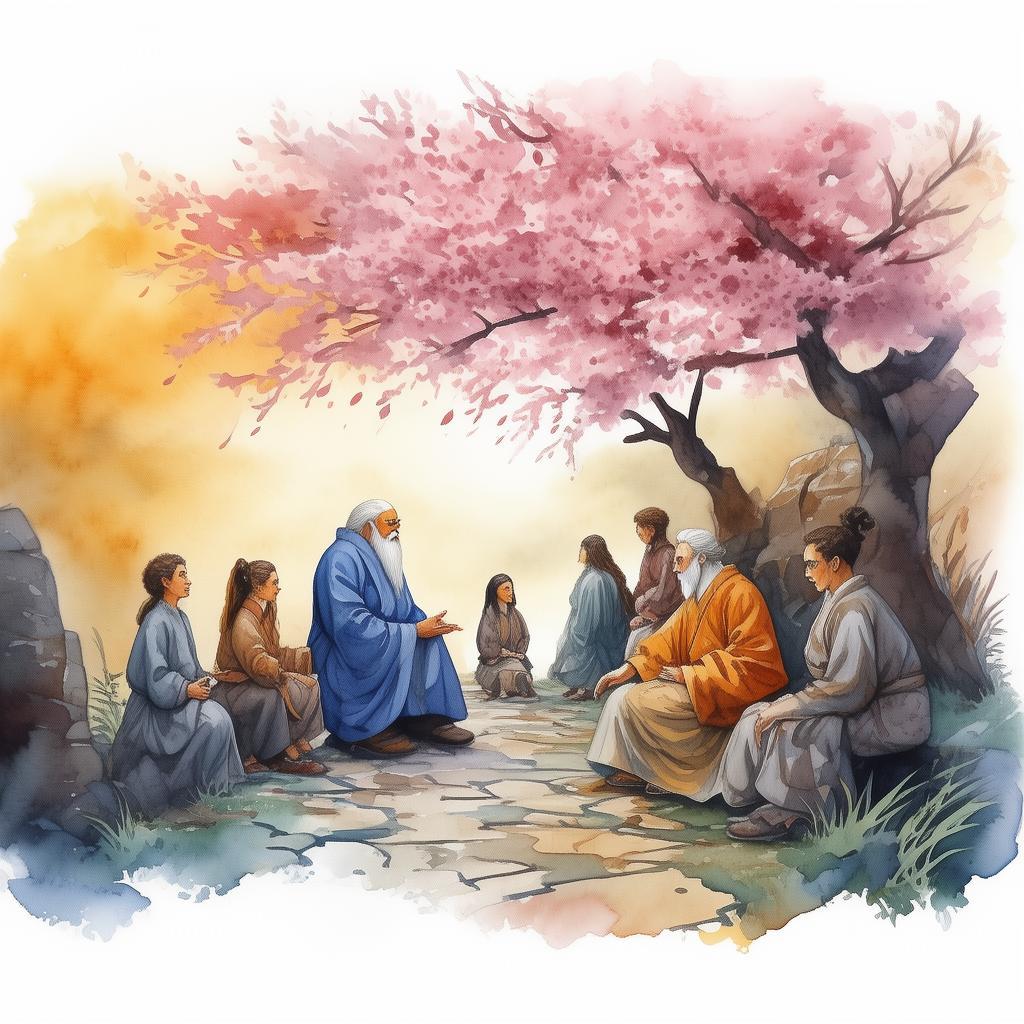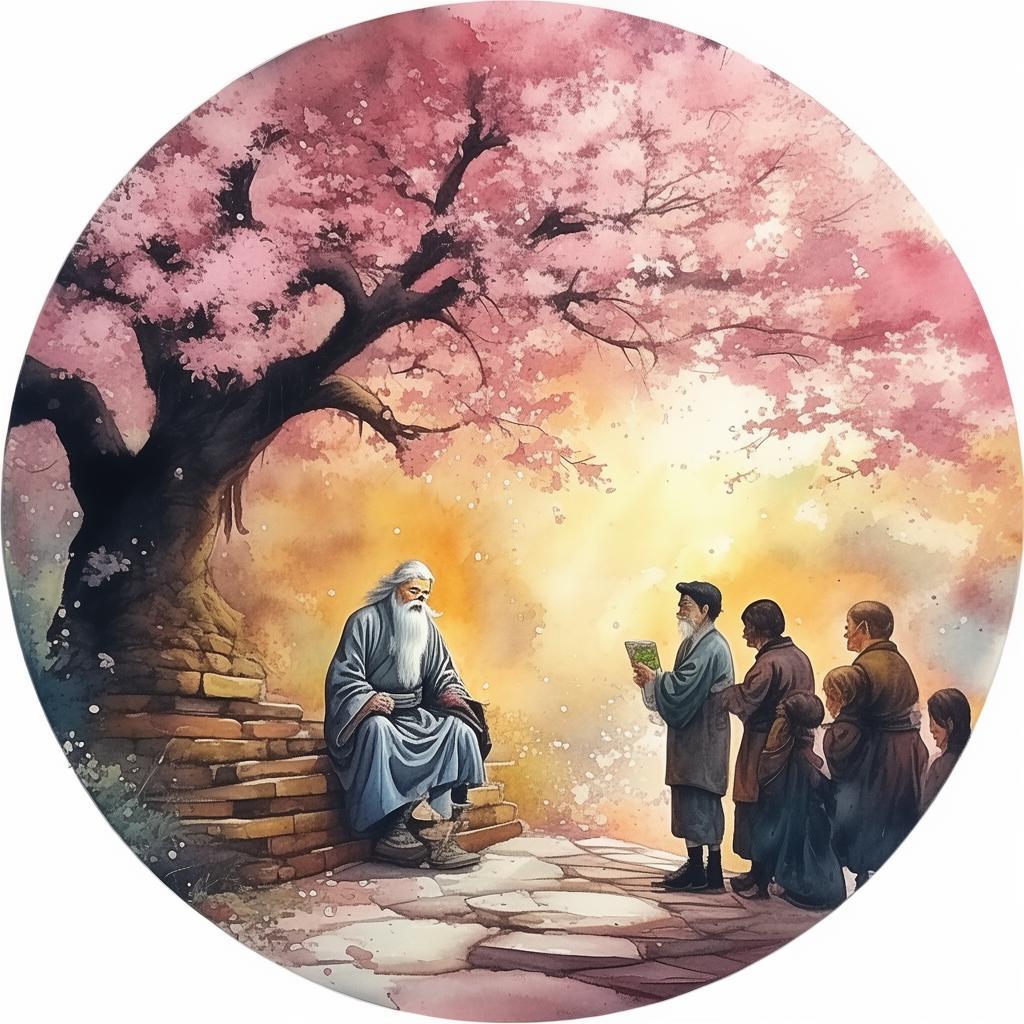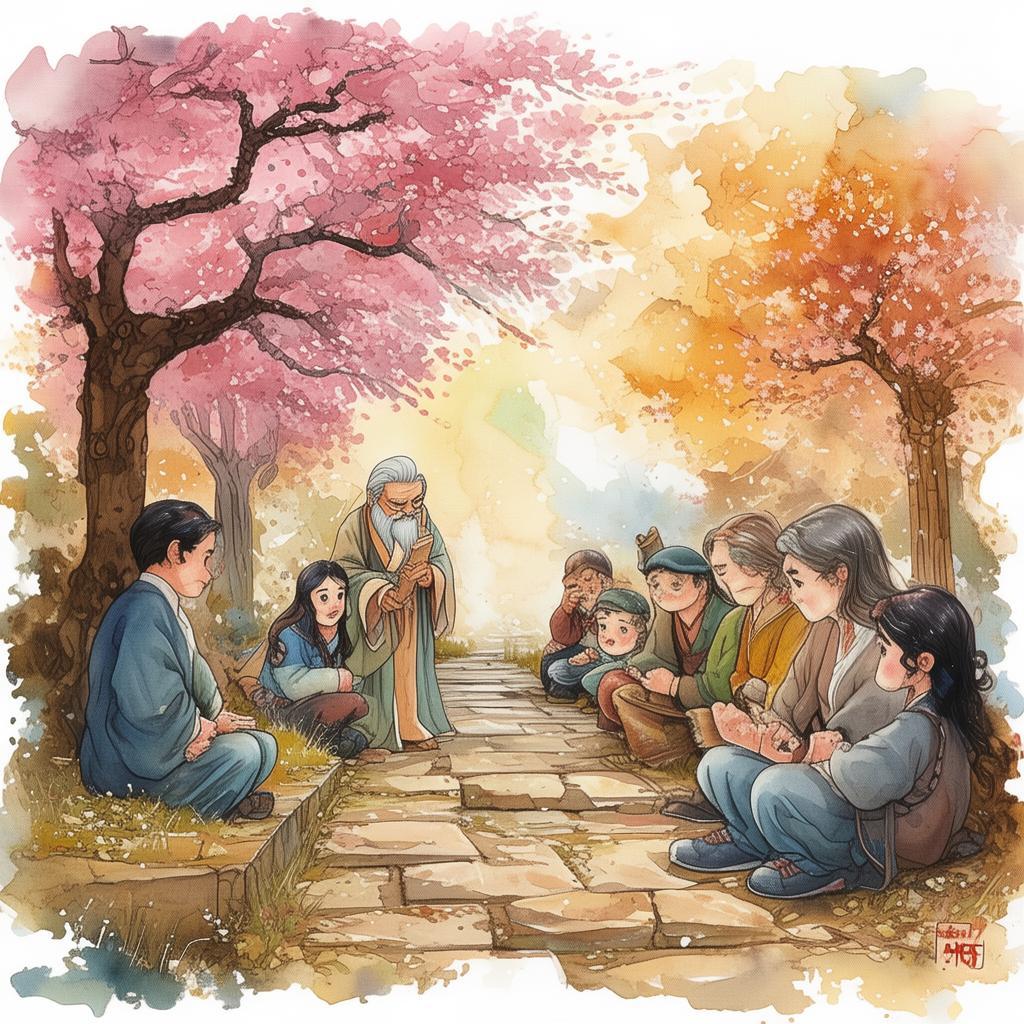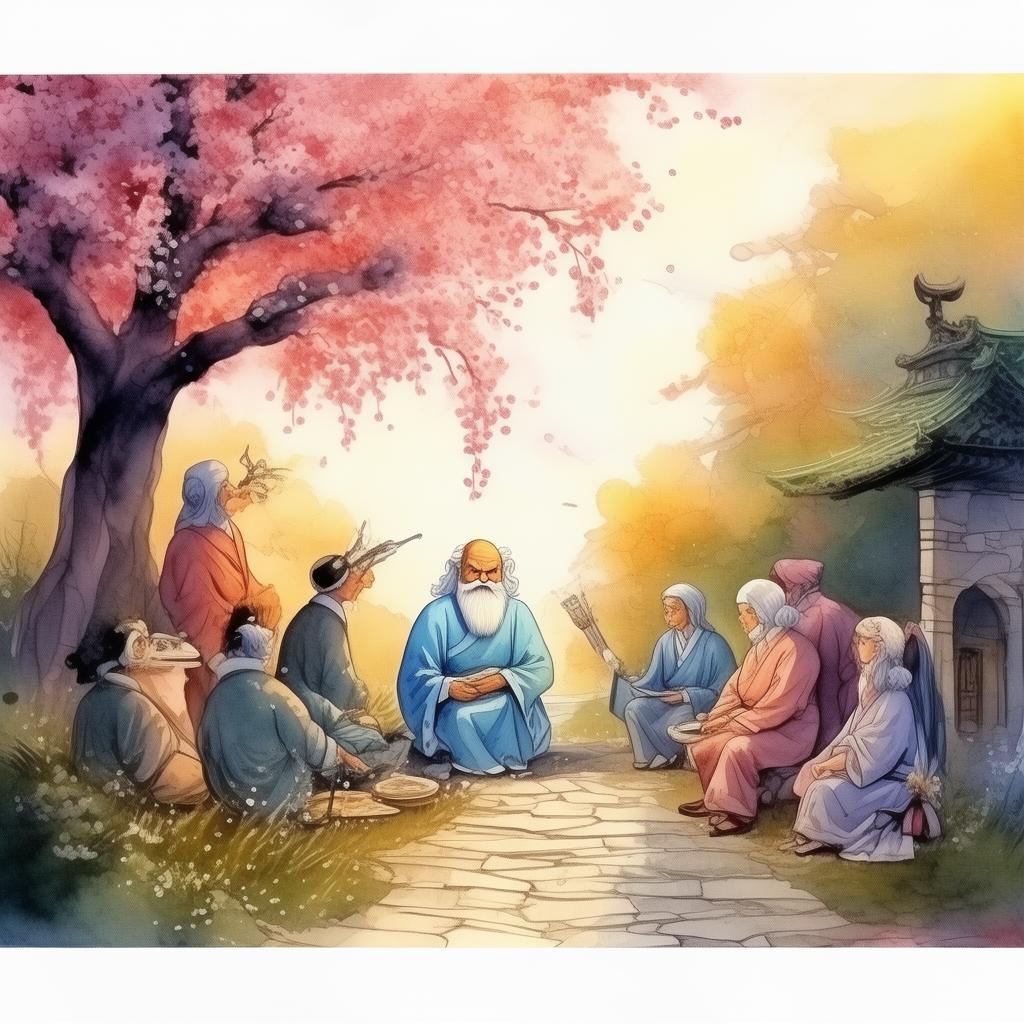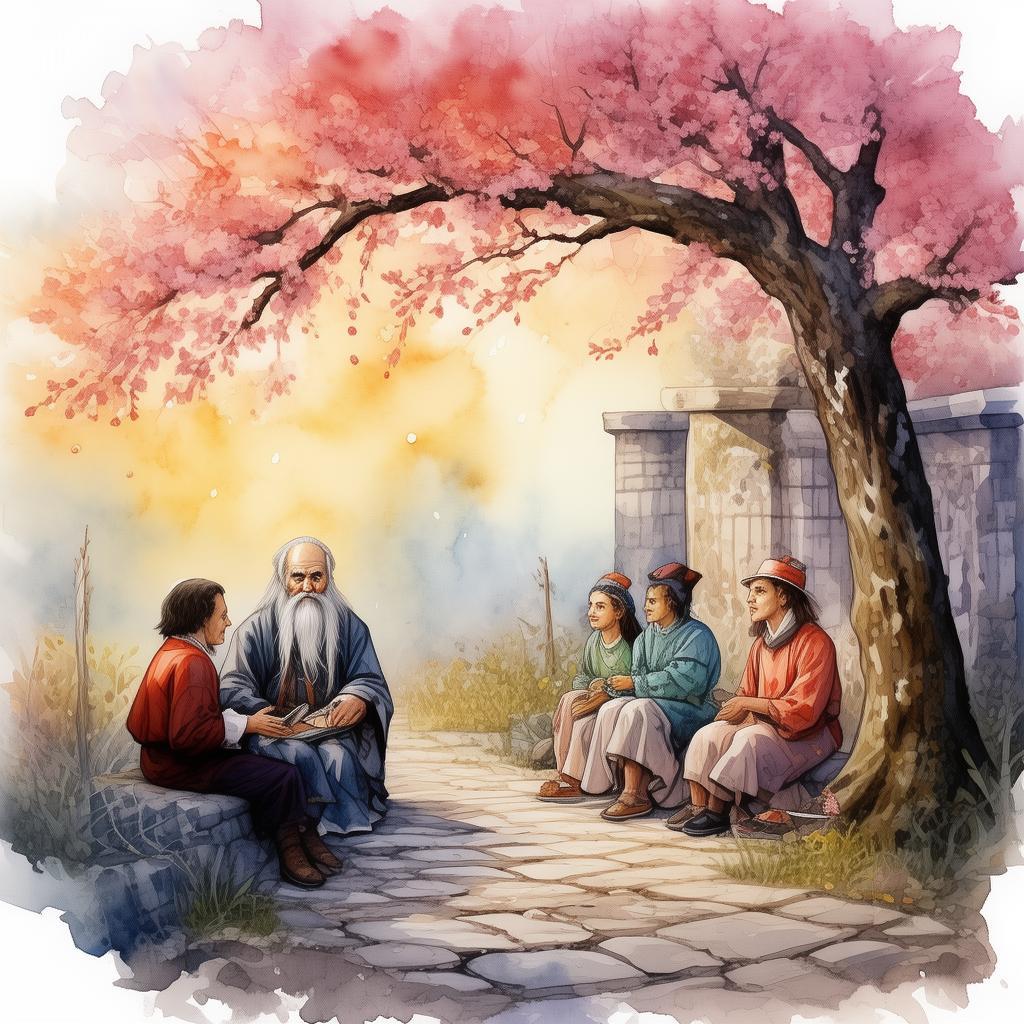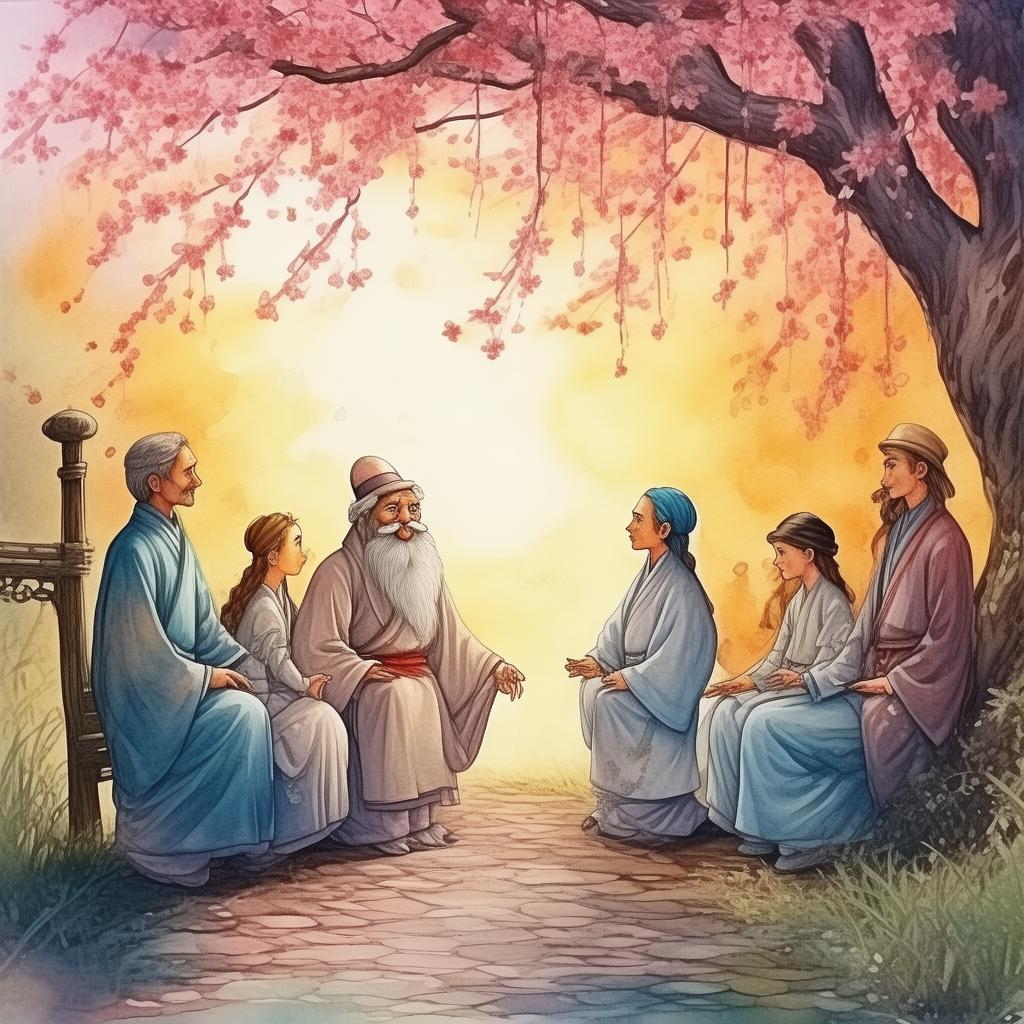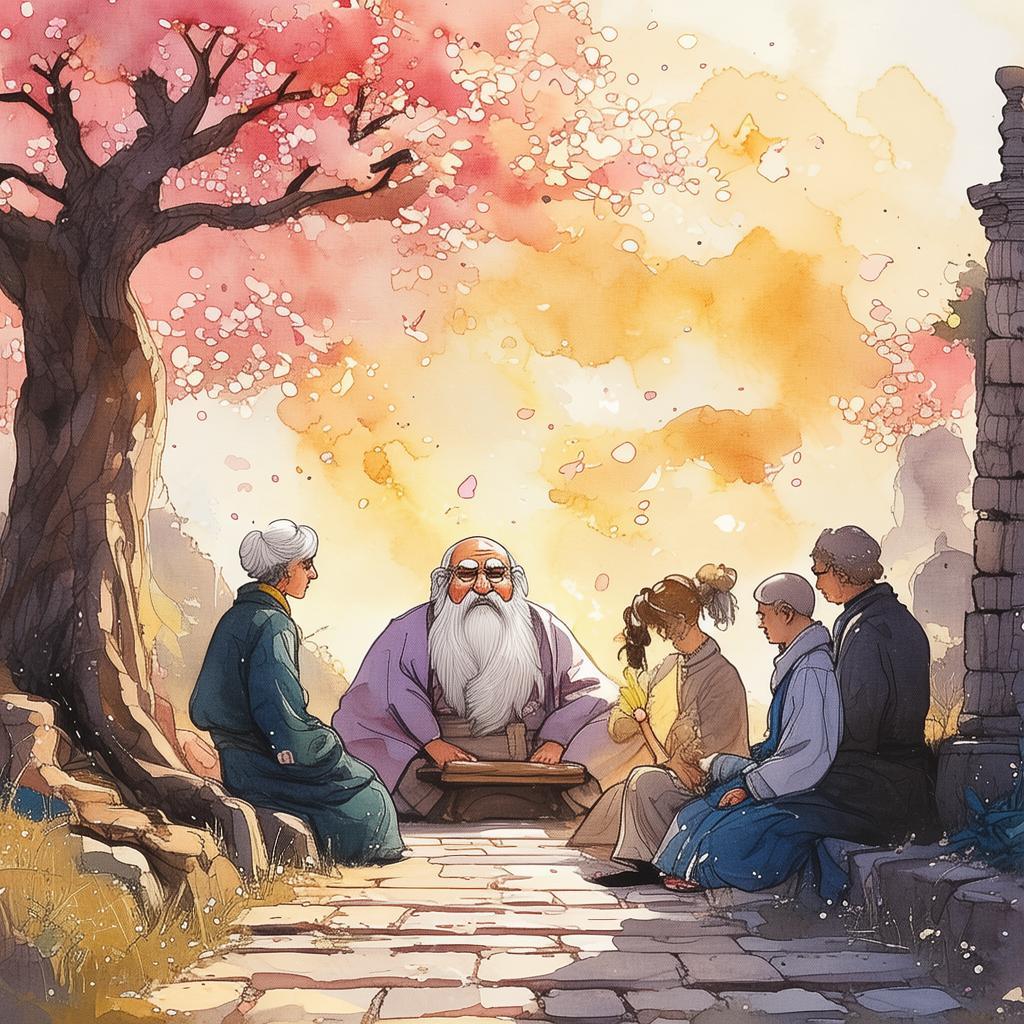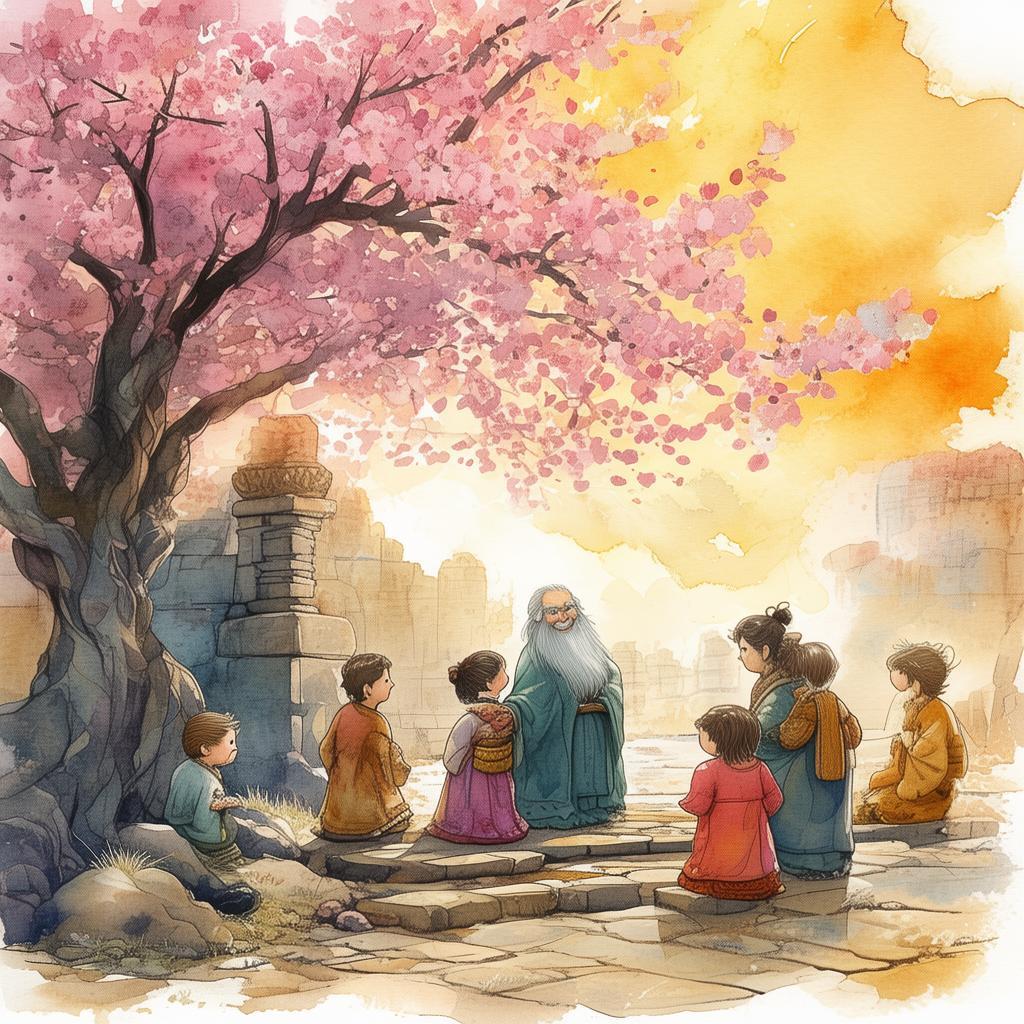The Peach-Red Triangle: Li Bai, the Poet, and the Feudal Lords
In the serene mountains of Tang Dynasty China, amidst the whispering bamboo and the rustling peonies, there lived a poet whose verses were as beautiful as the landscape he painted. His name was Li Bai, and his poetry was the balm to the souls of the common folk and the inspiration to the feudal lords who ruled the land.
In the year 742, the world was abuzz with the news of a new tournament, a contest that would determine the fate of the region's poetry. The winner would not only gain fame but also the favor of the most powerful feudal lord, thereby securing influence and protection. Among the contestants was none other than Li Bai, whose reputation preceded him like a banner unfurled in the wind.
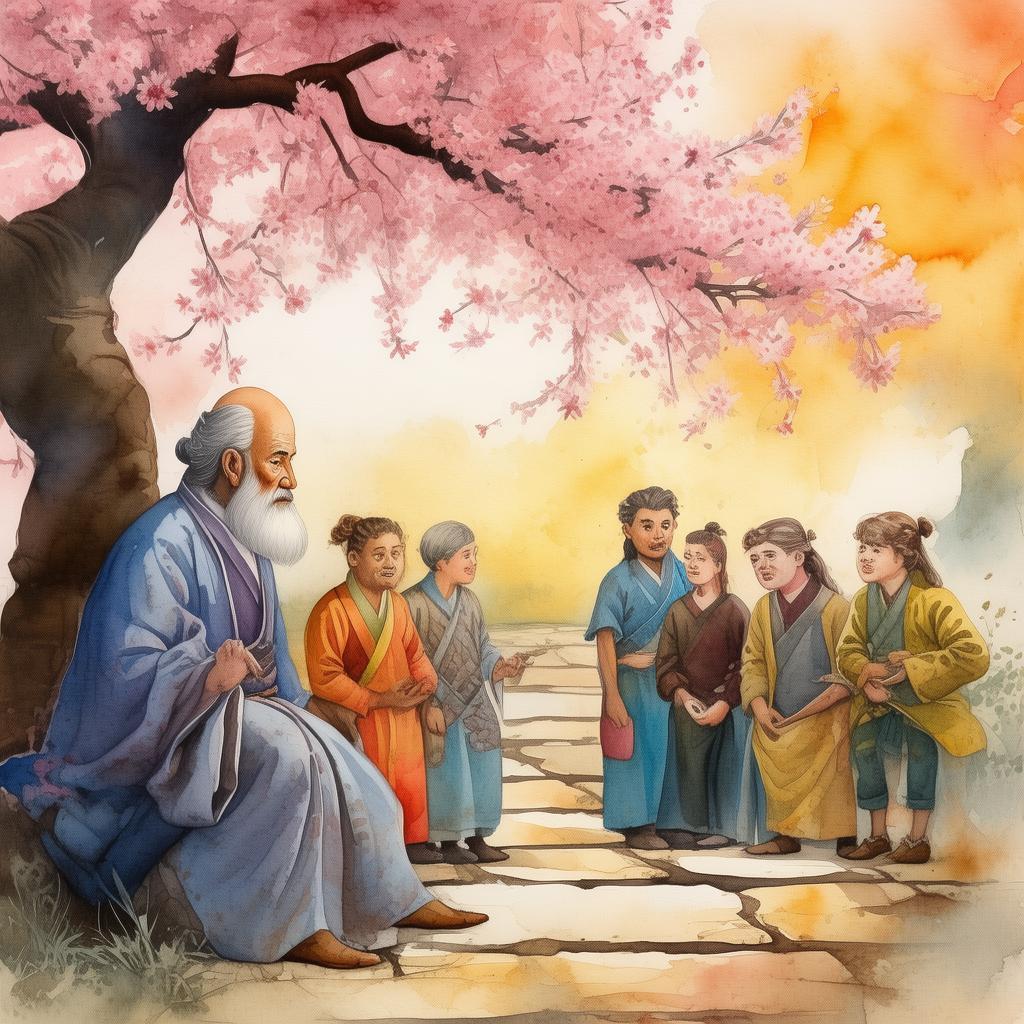
The triangle in question was not of love, but of power. At the peak of this triangle stood the Marquis of Chang'an, a lord known for his generosity and patronage. Below him were the Marquis of Qianling and the Marquis of Qinting, both ambitious and eager to win Li Bai's favor.
The tournament was a spectacle, with poets from far and wide descending upon the capital. The air was thick with anticipation as the judges took their seats. Li Bai, adorned in his traditional robe, stepped forward, his eyes reflecting the serenity of the mountains he called home.
He began his recitation with the words, "A journey of a thousand miles begins with a single step," a verse that resonated with the judges. The Marquis of Chang'an, who was known for his appreciation of the arts, smiled warmly at Li Bai. However, the Marquis of Qianling, with a calculating gaze, saw an opportunity to curry favor with the poet.
As the tournament progressed, the Marquis of Qianling sent his minions to court Li Bai in the dead of night. They offered him gold and lands, promising him protection and prosperity. Li Bai, who had always valued his independence and the purity of his art, was torn. The allure of power was strong, but it clashed with his principles.
Meanwhile, the Marquis of Qinting, feeling threatened by the other two lords' actions, devised a plan to win Li Bai over. He arranged for a secret meeting between the poet and his own son, a young and talented artist. Through this son, the Marquis of Qinting sought to ingratiate himself with Li Bai, hoping to secure his loyalty.
Li Bai, caught in the midst of this web of intrigue, knew that his decision would have far-reaching consequences. He sought counsel from his closest friend, a wise and humble monk named Daoxin. "The peach-red triangle of power, ambition, and loyalty," Daoxin mused, "is a delicate balance. Choose wisely, for the heart is a garden where both roses and thorns may bloom."
Li Bai pondered on his friend's words as the tournament reached its climax. He realized that the true contest was not just of poetry but of character. The Marquis of Chang'an, though a lord, had always been a patron of the arts, a man who valued the purity of the heart over the purity of power. The Marquis of Qianling, with his offer of wealth and influence, was like a siren's song, tempting him with false promises. The Marquis of Qinting, though a stranger to him, had shown genuine respect for his art and his principles.
In the end, Li Bai chose loyalty over power. He declined the Marquis of Qianling's offer and refused the Marquis of Qianling's son's assistance. Instead, he turned to the Marquis of Chang'an, who had stood by his side through the tournament, his actions and demeanor speaking louder than words.
The Marquis of Chang'an, touched by Li Bai's integrity, offered him not just protection but a place in his court, where he could continue to write without fear. Li Bai accepted, and from that day forward, the Marquis of Chang'an became his patron, and Li Bai, in turn, became the voice of the people, his poetry a testament to the beauty of the human spirit.
The story of the Peach-Red Triangle became a legend, a tale of how the power of poetry and the strength of character could overcome the allure of ambition and betrayal. It served as a reminder that true influence comes not from wealth or power but from the heart and the courage to stand by one's principles.
As Li Bai walked away from the tournament, his mind filled with the verses that would one day be etched in history, he knew that his decision had set a precedent. The peach-red triangle, once a symbol of ambition and betrayal, had become a symbol of the enduring power of poetry and the unyielding spirit of a man who chose his art over all else.
✨ Original Statement ✨
All articles published on this website (including but not limited to text, images, videos, and other content) are original or authorized for reposting and are protected by relevant laws. Without the explicit written permission of this website, no individual or organization may copy, modify, repost, or use the content for commercial purposes.
If you need to quote or cooperate, please contact this site for authorization. We reserve the right to pursue legal responsibility for any unauthorized use.
Hereby declared.
